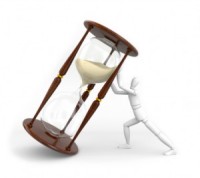We had a bit of a blow-out in the comment section two posts ago. John (JLK) wrote a comment in which he made several claims about what addiction “really” is and provided a very specific recipe for how it should be treated. He also said he didn’t think I qualified as a “true” addict:
Your method of quitting has always sounded too good to be true for me. You also are able to drink on a regular basis. While it is true it takes all kinds there are also a lot of similarities in the stories I have heard… and I must admit I have not heard one remotely like yours…
To put it plainly I am still not convinced you were a true addict but possibly driven by other psychological problems. First you were a “binger” and second you were able to quit the hard stuff too easily.
Two commenters, Alese and Nik, took John to task on these and other points. I stayed out of it, though it’s true his comment did piss me off, and I had to decide to hold my tongue.
 Now, in retrospect, I have a few points to add:
Now, in retrospect, I have a few points to add:
First, I don’t think John meant to offend. His very recent comment, about walking on eggshells, suggests that he has his own style of what to express and what NOT to hold back. I feel badly that you may have been stung by some of these replies, John, but I also think that they expressed important and valid counter-arguments to your claims. I also think you walked right into this, by challenging just about everything on your radar, without much thought about how readers, including me, would react.
Nik disputed some of your claims very convincingly. I won’t reiterate that here. But the upshot is that many of us feel there are many ways to BE addicted and many ways to recover….So, maybe, counter to the theme of my last post, there IS a fair bit of diversity in people’s experiences during addiction and recovery. But I guess what inflamed most was how you took experiences such as mine and passed judgement on them without seeming to care how I interpreted my own experiences. Most people, but (ex?) addicts especially, are pretty sensitive to that sort of thing: if you’re going to try to understand what I’ve been through, ask me, don’t tell me.
The funny part is: why should I be so proud of the “addict” label that I resent you for challenging it — as if you’ve ripped away my favourite shirt or something. But here are a few more concrete issues:
–many addicts are involved in “binge” style using. It’s really pretty common, among alcoholics too. I was talking to some addiction specialists last night who report that binge drinking among teens is rapidly on the rise in many Western countries, leading to increasing reports of death and brain damage. The main issues are: how often, how much harm, and how much control does one have? Call it binging or not, but I was very close to killing myself. When you alternately shoot Demerol and coke, every 20 minutes or so, a minor miscalculation can kill you easily, because you are balancing a massive dose of an opiate with a massive dose of a psychostimulant. This was one of the last episodes of using I report in my book — and I think it was one of my last times ever. Anyway, don’t imagine that this was child’s play, a point that’s not so much insulting as it is inaccurate.
-although my story has some unique features, it’s not all that unique. I did not quit easily. I had tried to quit many many times, and by now I was completely desperate. On this particular day, it worked. But that’s just a small part of the story. I’ve recently talked in depth with two heroin addicts, both of whom can point to a last day: the last day they used — after which they just stopped. So much desperation, disgust, and horror had built up, they just couldn’t keep going. So we shouldn’t confuse the “ease” of “just saying No” with the long, grinding build-up that makes that moment possible. And by the way, “spontaneous recovery” is much more common than recovery through any particular form of treatment, including certainly the 12-step approach. That’s a fact.
-John and I may agree on one thing: that compulsivity is a huge part of addiction. Different parts of the striatum are responsible for different aspect of addiction. The ventral striatum becomes highly sensitive to addictive cues and shifts attention to the drug/booze target. That’s impulsivity. The dorsal striatum is in charge of directing a stream of behaviour, step by step, toward that target. Compulsivity is the inability to turn off that stream of behaviour, as exemplified in OCD and compulsive gambling. Dopamine fuels both striatal functions — wanting and doing. And guess what: when Parkinson’s patients are given dopamine-enhancing drugs, their tendency toward compulsive gambling goes way up! A central issue in understanding addiction is: how and when does the impulsive aspect give way to or get replaced by the compulsive aspect? We need to learn more about this.
-and finally, yes, I’m able to drink alcohol without a massive landslide in self-control. So are a lot of other ex-addicts. This issue is not definitional — it’s a matter of individual diversity. Many ex-alcoholics can smoke, some can’t, some ex-junkies can drink, some can’t. For some former addicts, smoking pot is a minor diversion after giving up more toxic substances, for others it’s the top of the slippery slope. What bothers me is the tendency to set up these formulas and imagine that they apply to everyone: if you drink then you either never were or still are an addict. All these “formulas” have millions of exceptions. And something that hit-and-miss isn’t really a formula at all.
Okay, let’s bury the hatchet and keep on talking. We really can learn a lot from listening to each other — and that’s not just a warm-and-fuzzy motto: it’s a reality.







